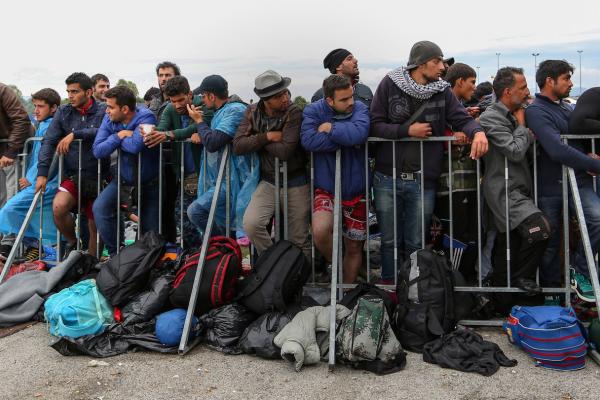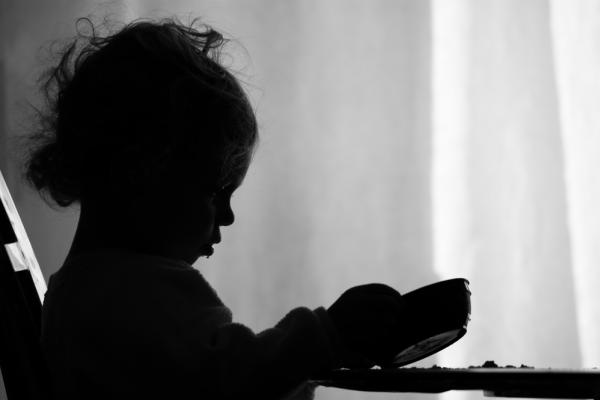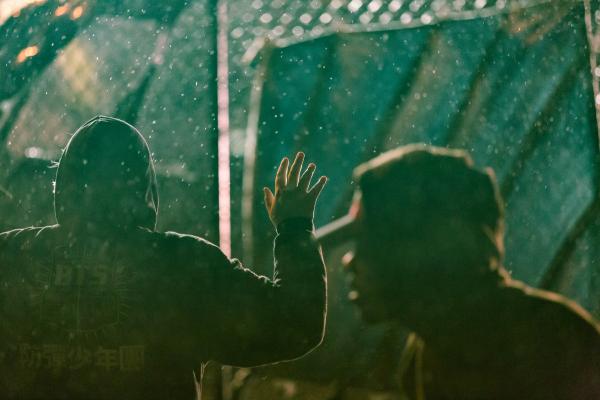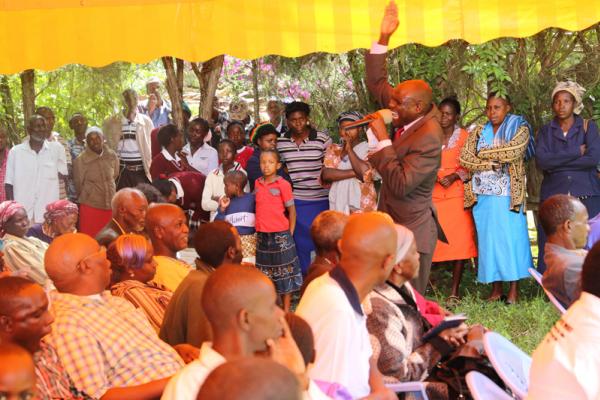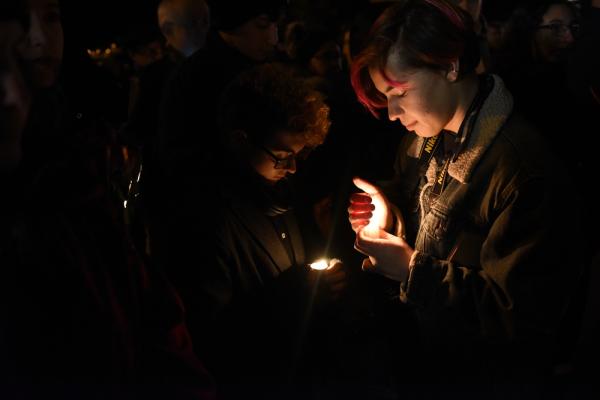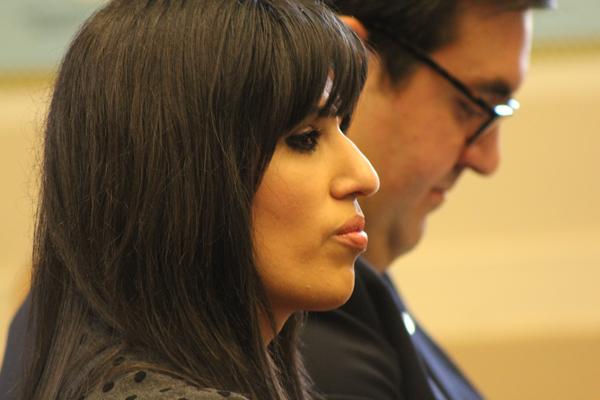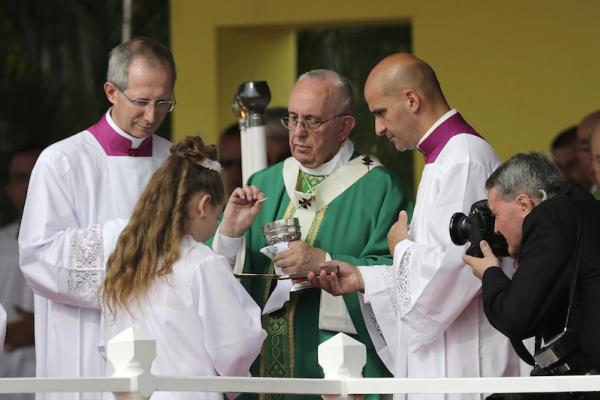God’s been telling the story of restoration since Genesis when we were created selem Elohim, in the image of God. We were created into perfect communion with God. From Genesis 3 until the end of the Old Testament, we see a narrative of a people in exile and God giving opportunities for reconciliation and restoration of relationship that humanity is incapable of accepting. Reconciliation is an exchange of something worthless (our condition of sin) for something immeasurably worthy (communion with God).
In the New Testament we see a biblical narrative through Jesus of now-but-not-yet restoration. In Jesus we see the coming of the Kingdom of God and get to be reconciled back to God. We even get a glimpse of an eternity where there is no more death or mourning or crying or pain.
If we truly believe we are the image of God, it changes how we approach the image of God in the world. Our call then is to actively partner with God in taking the world somewhere.
Hunger and food insecurity are so widespread in the United States they add $160 billion to national health care spending, according to a Christian advocacy group.
The Rev. David Beckmann, president of Bread for the World, said on Nov. 23 that hunger was a key factor in the U.S. having the worst infant mortality rate among developed countries.
“It is like a massive terrorist attack,” he said at the presentation of the group’s annual Hunger Report.
I despair for my country, which seeks to turn its back on refugees. I despair for my fellow Christians, who believe followers of other creeds deserve less compassion. I despair for leaders who blame all members of a religion for the acts of extremists. I certainly hope that logic doesn’t apply to me.
I searched for the right music for the mood. Bruce Springsteen’s “Devils and Dust” captured my mood perfectly. Listen to the chorus, “I got God on my side / And I'm just trying to survive / What if what you do to survive / Kills the things you love / Fear's a powerful thing, baby / It can turn your heart black you can trust / It'll take your God filled soul / And fill it with devils and dust.”
Counterdemonstrators described as "a group of white supremacists" opened fire on protesters near a Black Lives Matter camp in Minneapolis Monday evening, according to reports. The Minneapolis Police Department reported that all victims received "non-life threatening injuries."
Black Friday sales have been advertised for weeks now it seems. Doorstoppers, insane discounts, buy 1-get 1 free, and other mega sales are coming at us whether we want them to or not. Some stores are opening before the crack of dawn on Friday morning and others are not even closing from Thursday morning to Friday evening. The pressure to shop and spend is pretty intense. My social media feeds are equally filled with people excited about shopping and those who are pledging not to shop at any stores that have chosen to open on Thanksgiving Day. The debate is pretty intense at times. There are major opinions on both sides.
I have both shoppers and non-shoppers in my family. My mother and my brother-in-law are two of the shoppers. They love to shop and I mean that they LOVE to shop. They are professional level shoppers. They relish racking up major deals on Christmas gifts. So on more than one occasion I have watched them spend Thanksgiving evening planning their shopping run for Black Friday. They get out maps and sale flyers to plan their early morning excursion to make the most of the sales and the most of their time.
More than half of churchgoers who have had an abortion (52 percent) say no one at church knows it. Nearly half of women who have had an abortion (49 percent) say pastors’ teachings on forgiveness don’t seem to apply to terminated pregnancies.
“That tells you the environment of the church,” [Scott] McConnell [of LifeWay Reseach] said. “You can’t say you’ve had an abortion, you can’t say you’re considering one — it’s completely taboo to discuss.
“But when a woman is willing to publicly acknowledge she’s had an abortion in the past, she will sometimes be approached by several other women in the church who’ve never been willing to share with anybody that they too have had an abortion. It’s incredibly freeing for them.”
Throngs of Roman Catholics are expected to greet Pope Francis when he visits East Africa this week.
But the Rev. Anthony Musaala won’t be a part of the official welcoming delegation.
Two years ago, Ugandan Archbishop Cyprian Lwanga suspended Musaala indefinitely — barring him from administering the sacraments — when Musaala wrote an open letter that challenged his priestly vows of celibacy, condemned sexual abusers among the clergy, and criticized priests who father children and abandon them.
Lwanga said the letter “damages the good morals of the Catholic believers and faults the church’s teaching.”
My son’s public school is amazing. The community is everything I had hoped it would be. There are several parent and grandparent volunteers who come in and out of the building daily to help in the classroom, playground and lunchroom. At first, I had wanted to make a big fuss about security and locking the front door during the school day. I thought that was going to be my platform, my soapbox. But after the crying incident, I decided that something in me had to change. I didn’t want to live in fear anymore. I didn’t want to let fear drive me. After some reflection, I had to shift that fear and move to a place of hope and love. Hope that this kind of violence would never touch my school community. Belief that our community is strong and committed and that love would ultimately win and have the last word.
The wife of Saeed Abedini, the Iranian-American pastor imprisoned in Iran since September 2012, has had a difficult month.
First Naghmeh Abedini canceled all public appearances after telling supporters by email that her husband had abused her physically, emotionally, and sexually. Twelve days later, she released a statement saying she regretted her previous emails.
“I was under great psychological and emotional distress,” she said.
Pope Francis has a knack for setting traditionalist teeth on edge with unscripted musings on sacred topics. He recently did it again when he seemed to suggest that a Lutheran could receive Communion in the Catholic Church after consulting her conscience.
The exchange came up during a prayer service Nov. 15 at a Lutheran church in Rome that had invited the pontiff. And he used the occasion to engage in a question-and-answer session with some of the congregants.
One woman, Anke de Bernardinis, told Francis that she was married to a Catholic and that she and her husband share many “joys and sorrows” in life, but not Communion at church.
“What can we do on this point to finally attain Communion?” she asked.
